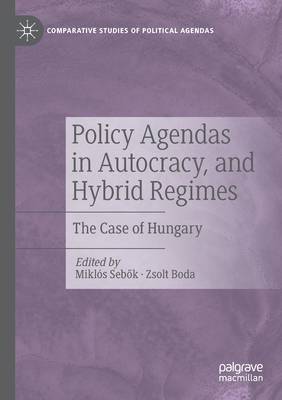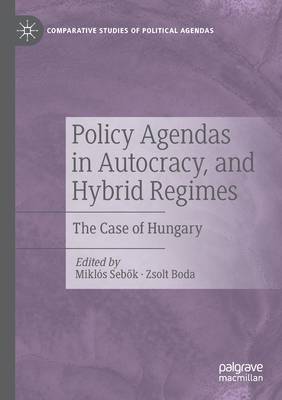
- Retrait gratuit dans votre magasin Club
- 7.000.000 titres dans notre catalogue
- Payer en toute sécurité
- Toujours un magasin près de chez vous
- Retrait gratuit dans votre magasin Club
- 7.000.0000 titres dans notre catalogue
- Payer en toute sécurité
- Toujours un magasin près de chez vous
Policy Agendas in Autocracy, and Hybrid Regimes
The Case of Hungary
Description
Over the past thirty years the comparative study of policy agendas under the aegis of the Comparative Agendas Project (CAP) has become one of the fastest growing sub-field in policy research. Yet, similarly to policy studies in general, most of the agenda-setting literature focuses on well-established democracies. This edited volume offers a ground-breaking analysis of a hitherto less examined topic in comparative politics: the dynamics of policy agendas in Socialist autocracy and in hybrid regimes. We propose that policymaking in authoritarian and illiberal regimes is different from the practices of democracies which we analyse based on a unique historical policy agendas database built by the Hungarian CAP team at the Centre for Social Sciences in Budapest. We find that punctuated equilibrium theory offers a good description of policy dynamics regardless of policy regimes, yet punctuations are more pronounced in autocratic and illiberal settings. These regime types also share a tendency towards centralization, a less efficient use of public information and a suppression of democratic participation in the policy process. This book may be of interest to scholars and students of policy studies, agenda-setting and the politics of authoritarianism.
Spécifications
Parties prenantes
- Editeur:
Contenu
- Nombre de pages :
- 313
- Langue:
- Anglais
- Collection :
Caractéristiques
- EAN:
- 9783030732257
- Date de parution :
- 03-06-22
- Format:
- Livre broché
- Format numérique:
- Trade paperback (VS)
- Dimensions :
- 148 mm x 210 mm
- Poids :
- 439 g

Les avis
Nous publions uniquement les avis qui respectent les conditions requises. Consultez nos conditions pour les avis.





